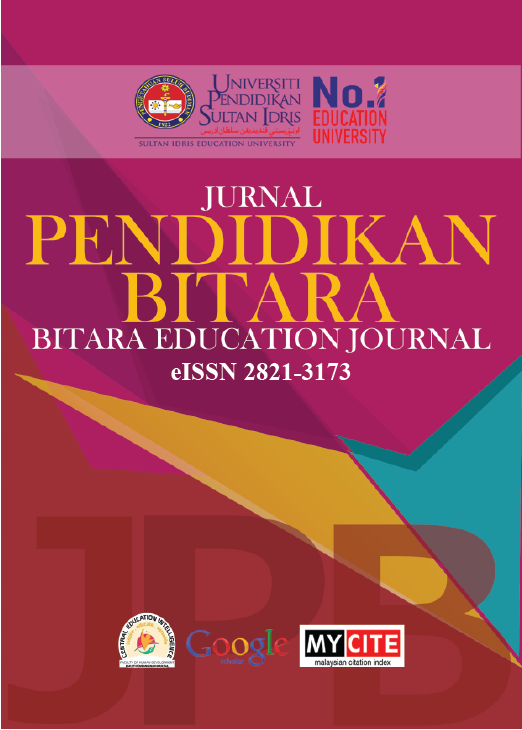The effectiveness of a basic counseling skill training with the cycle learning method on the interpersonal communication of PTKI students in Semarang City
DOI:
https://doi.org/10.37134/bitara.vol16.2.2.2023Keywords:
Basic Counseling Skill, Cycle Learning Method, Interpersonal CommunicationAbstract
This research attempted to determine the effectiveness of a basic counselling skill training model with the cycle learning method on the interpersonal communication of PTKI students in Semarang City. It was a quantitative research which employed a quasi-experimental approach. In this research, the subjects were sampled using a cluster random sampling technique with class A appointed as the experimental class and class B as the control class. All classes data were analyzed in terms of difference test, effectiveness test for each variable, and correlation test among variable. Findings indicated an increase in the mean of environmental care attitude and learning outcomes of the experimental class, namely 43.04 and 44.73 respectively, while the control group obtained 26.23 and 24.38. Moreover, the effectiveness test for each variable resulted an Asymp value. Sig. (2-tailed) of 0.000 <probability value of 0.05 for environmental care attitude and Asymp value. Sig. (2-tailed) of 0.000 <probability value of 0.05 for learning outcomes. The correlation test between variables resulted a value of rxy = 0.617 and was concluded to be significant with a fairly strong correlation. Thus, the application of a basic counseling skill training model with the cycle learning method is effective to improve the interpersonal communication of PTKI students in Semarang City.
Downloads
References
Suparman, M. A. (2012). Desain instruksional modern. Jakarta: Erlangga.
Sulianto, J., Purnamasari, V., & Febriarianto, B. (2019). Pengaruh Model Pembelajaran Think-Pair-Share terhadap Hasil Belajar Siswa Kelas V (Lima) Materi Organ Tubuh Manusia dan Hewan. Internasional Journal of Elementary Education, 3(2), 124–131. https://doi.org/10.23887/ijee.v3i2.18515.
Syukur, A., Azis, R., & Sukarsih. (2020). Developing Reading Learning Model to Increase Reading Skill for Animal Husbandry Students in Higher Education. Britain International of Linguistics, Arts and Education, 2(1), 484–493. https://doi.org/10.33258/biolae.v2i1.220.
Wahyuni, I., Slameto Slameto, & Setyaningtyas, E. W. (2018). Penerapan Model PBL Berbantuan Role Playing untuk Meningkatan Motivasi dan Hasil Belajar IPS. Jurnal Ilmiah Sekolah Dasar, 2(4), 356–363. https://doi.org/http://dx.doi.org/10.23887/jisd.v2i4.16152. Tsoni, R., & Pange, J. (2014). Improving ICT skills of students via online courses. ICICTE 2014, 335-342.
Tynan, B., & Barnes, C. (2012). Web 2.0 and professional development of academic staff. In Virtual Learning Environments: Concepts, Methodologies, Tools and Applications (pp. 94-108). IGI Global.
Uzunboylu, H., Bicen, H., & Cavus, N. (2011). The efficient virtual learning environment: A case study of web 2.0 tools and Windows live spaces. Computers & Education, 56(3), 720-726.
Downloads
Published
Issue
Section
License
Copyright (c) 2023 Nur Khoiri, Kung-Teck Wong, Saifullah Hidayat

This work is licensed under a Creative Commons Attribution-NonCommercial-ShareAlike 4.0 International License.





